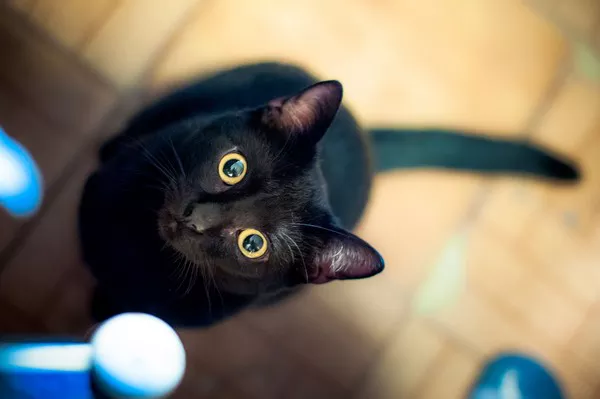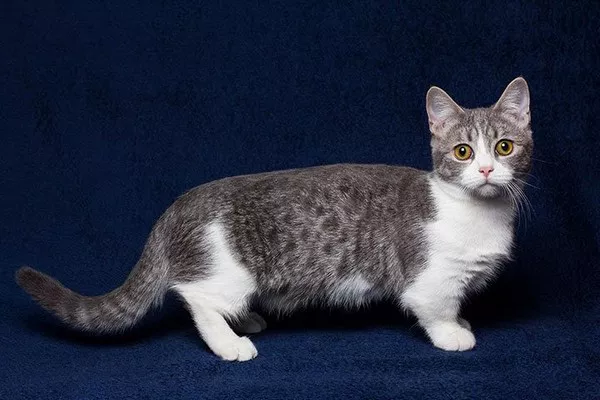The Sphynx cat is a unique breed known for its hairless appearance and affectionate personality. These cats are highly social, intelligent, and playful, making them wonderful companions. However, their distinctive looks come with specific care needs, including a range of potential health issues. As a potential Sphynx cat owner, it is crucial to understand the health problems that may affect this breed to ensure your pet lives a long, healthy, and happy life. In this article, we will dive deep into the common health problems faced by Sphynx cats, how to identify them, and what you can do to help prevent or manage them.
Overview of Sphynx Cats: A Unique and Beloved Breed
Before delving into their health issues, it’s important to understand what makes Sphynx cats unique. Unlike most cats, Sphynx cats lack a fur coat, which gives them their signature bald look. Despite being hairless, they still produce oils in their skin, which requires regular cleaning to prevent skin problems. The breed is also known for its loving temperament and high energy levels, which make them excellent pets for active households.
However, like all breeds, Sphynx cats are prone to certain health problems. Understanding these potential issues is the first step in preventing them and providing the best care for your pet.
What Health Problems Do Sphynx Cats Have?
Sphynx cats, despite being generally healthy, are prone to certain genetic and environmental health issues. It is essential for potential owners to be aware of these problems to prevent complications and ensure the well-being of their pets.
1. Hypertrophic Cardiomyopathy (HCM)
Hypertrophic Cardiomyopathy (HCM) is one of the most common heart conditions in Sphynx cats, as well as in many other breeds. This condition involves the thickening of the heart’s muscles, particularly the left ventricle. As the walls of the heart become thicker, it can make it difficult for the heart to pump blood effectively.
Signs of HCM in Sphynx Cats
- Difficulty breathing
- Decreased appetite
- Lethargy or weakness
- Sudden collapse or fainting
If you notice any of these symptoms, it’s essential to consult a veterinarian as soon as possible. HCM can lead to severe complications, including heart failure and blood clots, so early detection and treatment are vital.
Management and Treatment
While there is no cure for HCM, medications such as beta-blockers and calcium channel blockers can help manage the condition and improve your cat’s quality of life. Regular vet check-ups and heart screenings are also important in monitoring the progression of the disease.
2. Skin Issues: Seborrhea and Acne
Sphynx cats, with their lack of fur, have a tendency to develop skin problems. One common issue is seborrhea, a condition where the skin becomes excessively oily or flaky. Since Sphynx cats do not have fur to absorb the oil, it accumulates on their skin, potentially leading to infections, rashes, or acne.
Seborrhea
Seborrhea occurs when the skin produces too much oil, leading to greasy patches or flakes on the skin. This can create discomfort and may also attract bacteria or yeast, causing infections. Regular bathing and proper skin care are necessary to keep the skin clean and healthy.
Acne
Sphynx cats are also prone to developing acne, which typically appears on their chin and the lower part of their face. Acne occurs when hair follicles become clogged with oil and debris, leading to pimple-like bumps and inflammation.
Preventing and Treating Skin Issues
To prevent skin problems in Sphynx cats, it is essential to bathe them regularly, usually once a week or every two weeks. Use a gentle, cat-safe shampoo to avoid irritating their sensitive skin. Additionally, wiping their face and chin regularly can help reduce the buildup of oils that may lead to acne.
If your cat shows signs of skin issues, it’s best to consult with a veterinarian to determine the appropriate treatment, which may include medicated shampoos, topical treatments, or antibiotics.
3. Respiratory Issues: Upper Respiratory Infections (URI)
Due to their lack of fur, Sphynx cats are more susceptible to respiratory issues, particularly upper respiratory infections (URIs). These infections are typically caused by viruses or bacteria and can lead to symptoms such as sneezing, nasal discharge, coughing, and lethargy.
Signs of Upper Respiratory Infections in Sphynx Cats
- Sneeze and nasal discharge
- Coughing and wheezing
- Loss of appetite
- Difficulty breathing or open-mouth breathing
Preventing Respiratory Infections
To prevent respiratory infections, it’s important to keep your Sphynx cat’s environment clean and free of allergens. Regular vaccination is essential, as URIs can be caused by viruses such as feline herpesvirus or calicivirus. Ensuring your cat is not exposed to stress and maintaining a clean litter box can also help reduce the risk of infection.
Treatment for Respiratory Infections
If your Sphynx cat shows symptoms of a respiratory infection, it is important to visit the vet immediately. Antibiotics or antiviral medications may be prescribed to treat bacterial or viral infections. Additionally, keeping your cat warm and hydrated can help speed up recovery.
4. Kidney Disease (Polycystic Kidney Disease – PKD)
Polycystic Kidney Disease (PKD) is a hereditary condition that can affect Sphynx cats. PKD is characterized by the growth of cysts in the kidneys, which can impair kidney function over time and lead to kidney failure if left untreated.
Signs of PKD in Sphynx Cats
- Increased thirst and urination
- Weight loss despite a good appetite
- Vomiting and diarrhea
- Lethargy and decreased activity
Managing Kidney Disease
There is no cure for PKD, but the condition can be managed with proper veterinary care. Regular check-ups, blood tests, and ultrasounds are important for monitoring kidney function. Treatment may include fluid therapy, dietary changes, and medications to control symptoms.
5. Hip dysplasia
Hip dysplasia is another health issue that can affect Sphynx cats, although it is more common in larger breeds. This condition occurs when the hip joint does not develop properly, causing pain, stiffness, and mobility issues.
Signs of Hip Dysplasia in Sphynx Cats
- Lameness or difficulty walking
- Reluctance to jump or climb
- Decreased activity levels
- Pain or sensitivity in the hip area
Treatment for Hip Dysplasia
If your cat shows signs of hip dysplasia, it’s important to seek veterinary care. Treatment options may include pain management, physical therapy, and in severe cases, surgery to repair or replace the hip joint. Early detection is key to managing the condition and improving your cat’s mobility.
6. Dental Issues: Gingivitis and Periodontal Disease
Dental issues, such as gingivitis and periodontal disease, are common among Sphynx cats. These conditions can cause pain, discomfort, and lead to more serious oral health problems if left untreated.
Signs of Dental Issues in Sphynx Cats
- Bad breath
- Red or swollen gums
- Drooling
- Difficulty eating or chewing
Preventing Dental Issues
Regular dental check-ups and professional cleanings are important for maintaining your Sphynx cat’s oral health. Brushing your cat’s teeth at home with a cat-safe toothbrush and toothpaste can also help prevent the buildup of plaque and tartar. Additionally, providing dental treats and toys can encourage healthy teeth and gums.
7. Eye Problems: Conjunctivitis and Dry Eye
Sphynx cats can be prone to various eye problems, including conjunctivitis and dry eye. Conjunctivitis is the inflammation of the eye’s conjunctiva, often caused by viral or bacterial infections. Dry eye, or keratoconjunctivitis sicca (KCS), occurs when there is a lack of tear production, leading to irritation and potential damage to the eyes.
Signs of Eye Problems in Sphynx Cats
- Red or swollen eyes
- Excessive tearing or discharge
- Squinting or blinking frequently
- Eye pain or sensitivity
Treating Eye Problems
Eye issues in Sphynx cats should be treated promptly to avoid complications. Your vet may prescribe antibiotic eye drops for infections or lubricating drops for dry eye. In severe cases, surgical intervention may be required.
Conclusion
Sphynx cats are a unique and lovable breed that requires special care, particularly regarding their health. While they may be prone to certain health issues, regular veterinary visits, proper grooming, and attention to their needs can help prevent and manage many of these conditions. As a Sphynx cat owner, it’s essential to remain vigilant about their health and seek professional care if you notice any concerning symptoms.
By understanding the potential health problems associated with Sphynx cats and providing them with the appropriate care, you can ensure your feline companion lives a long, healthy, and happy life.
Related topics:



























